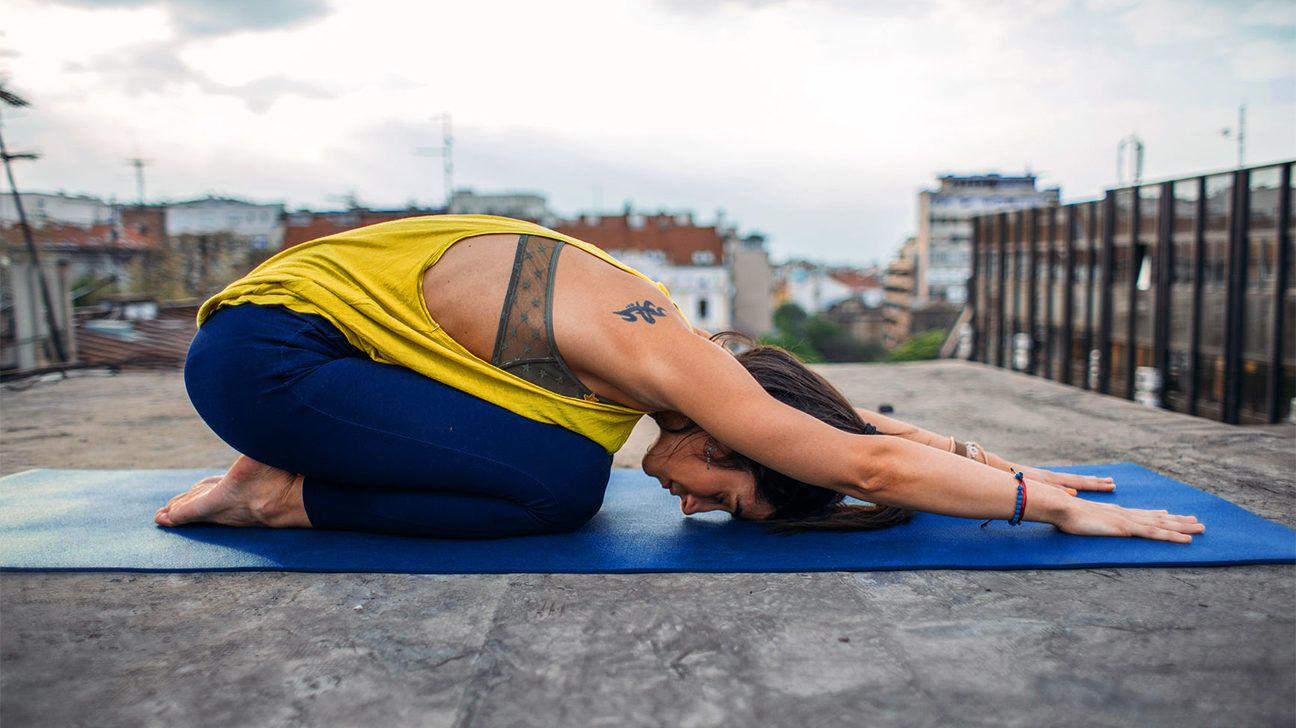On a July beach day with friends, I swore I would do two things before the summer ended: Get my first tattoo and register for a half-marathon.
I didn’t know these two goals would conflict until my roommate alerted me otherwise. I wanted to stick to my training plan, but it was also important to me that my tattoo healed well, so I easily spent 3 hours scouring the internet for an answer.
Most reputable tattoo artists suggest that people refrain from working out for the first 2 weeks of healing, since that’s when the tattoo is most sensitive. If you’ve noticed your skin is still red and warm after getting inked, that’s your body still activating its immune system response. A tattoo is technically a wound, and you don’t want to push your body while it’s healing.
“We strongly advise not to rush into strenuous activities, which will cause friction and sweat on the tattoo, because it will put the piece at risk of irritation,” says Maggie Stockman, studio manager at Welcome Home Studio in NYC. “[This] slows the healing process down.”
If you just can’t go a week without working out and you’re looking for a green light, well, this is not the place.
According to Evan Rieder, MD, assistant professor of dermatology at NYU Langone Health, the information is mixed on how soon you can get back to working out because there isn’t a lot of evidence-based literature.
There’s also lots of disagreement on sweat’s role in the healing process, Rieder says, but the main concern is still bacteria.
“Gyms are notorious for harboring the bacteria, yeast, and fungi that cause superficial skin infections. Working out likely plays a role in the event of microbial exposure through gym instruments, direct trauma to tattoos, and extreme overstretching of muscles, which could theoretically warp a tattoo.”
That’s not to say you should totally stop exercising. While Stockman recommends waiting 1 to 2 weeks, she also says, “Before that, keep your gym routine to a minimum and perhaps take a long walk instead!”
But what if walking doesn’t give you the gains you need? Before you jump back into any workout, abridged or not, consider the type of tattoo you have. Is it hand-poked, or did you sit under a machine for 2 hours? Is it big? Is it across your torso or on your forearm?
“Typically hand-poked tattoos heal a bit faster than machine because it is a less invasive and traumatic process to get the ink into the skin,” Stockman says.
According to Rieder, though, the depth of the tattoo needle plays a bigger role. And depth matters when it comes to your tattoo placement, size, and detail.
“[Do the workout] that directs focus away from the muscle group under which the tattoo sits,” Rieder says. “In general, it is best to be very gentle with tattoos, avoiding direct trauma and stretching to the tattoo itself.”
While smaller tattoos heal faster, all tattoos hate friction, which can be the downfall of the healing process.
It turns out that to keep up with the half-marathon plan, all I had to do (after waiting a week just to be safe) was make sure my inner arm didn’t rub against my body or clothes. It was awkward, but I did it!
If you’re itching to work out and your first 2 weeks haven’t yet passed, stick to this rule to exercise safely: Avoid working out the muscles under your tattoo.
| Where is your new tattoo? | Workout alternatives |
| Arms or hands | Focus on your legs: Do squats without weights, the stair-climber, or a stationary bike. |
| Back or chest | Stick to walking and localized, gentle arm and leg workouts. Avoid activating your back or chest muscles. |
| Legs or feet | Go to town on your arms and abs. Think planks, biceps curls, sit-ups. |
Stick to these basic rules when exercising:
- Don’t overwork or concentrate on the muscle area under your tattoo.
- Keep a shirt on and/or have the tattoo covered at all times to keep gym bacteria away.
- Friction is not your friend: Make sure your movements don’t cause your tattoo to rub against your clothing or other areas of your body.
- Follow your aftercare regimen and wash your tattoo before and after your sweat session!
Izzie Ramirez is a reporter based in New York City, specializing in protest coverage, immigration, and city news. Follow her on Twitter.

